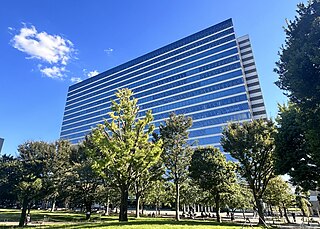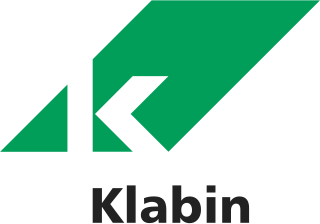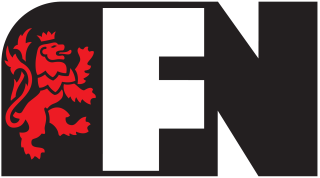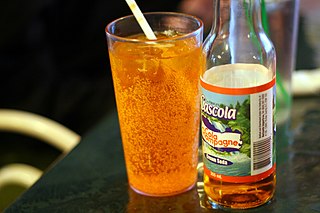
The Kirin Holdings Company, Limited. (キリンホールディングス株式会社) is a Japanese beer and beverage holding company. It is known for brands such as Kirin Beer, Kirin Lemon, Mets, and Gogo no Kōcha.

Klabin is a Brazilian paper producing, exporting and recycling company headquartered in São Paulo. It is the largest paper producer and exporter in the country, focusing on the production of pulp, packaging paper and board, corrugated cardboard packaging, and industrial sacks, besides selling timber in logs. It is controlled by Klabin Irmãos & Cia and NIBLAK Participações S/A, which jointly own 52.23% of the voting capital. It is organized into four business units certified by the Forest Stewardship Council (FSC).

Brazil is the world's third largest beer market with total volume at 139 million hectoliters, and per capita consumption 61 liters in 2016.
Brasil Kirin was a Brazilian brewery and drink company, the second largest in the country after AmBev. Founded in 1939 as Schincariol, the company was purchased in 2011 by the Kirin Company. In 2017, Kirin sold the company to Heineken N.V. of the Netherlands, and is now fully integrated into Heineken's Brazil operations.

Cervejaria Petrópolis is a Brazilian brewery (cervejaria) company headquartered in Petrópolis. The company has 6 industrial plants located in Petrópolis, Boituva, Teresópolis, Rondonópolis, Alagoinhas and Itapissuma, and operates in Brazil, Germany and Paraguay.

Brazilian industry has its earliest origin in workshops dating from the beginning of the 19th century. Most of the country's industrial establishments appeared in the Brazilian southeast, and, according to the Commerce, Agriculture, Factories and Navigation Joint, 77 establishments registered between 1808 and 1840 were classified as "factories" or "manufacturers". However, most, about 56 establishments, would be considered workshops by today's standards, directed toward the production of soap and tallow candles, snuff, spinning and weaving, foods, melting of iron and metals, wool and silk, amongst others. They used both slaves and free laborers.

Fraser and Neave, Limited (F&N) is a Thai-Singaporean food and beverage and publishing and printing industries conglomerate. It is owned by Thai Chinese billionaire business magnate Charoen Sirivadhanabhakdi.

The Legislative Assembly of Minas Gerais is the state legislature of Brazil's Minas Gerais state. It consists of 77 state deputies elected by proportional representation and is based in Belo Horizonte, the state capital. The Assembly has been based at the Palácio da Inconfidência since the building's 1972 opening; it was made a national heritage site in 2009.

Devassa is a brand of beer based in Brazil made by Brasil Kirin under license from the U.S. company Playboy.

Champagne cola, Kola Champagne, or Champagne soda is a sweetened carbonated beverage produced mainly in the tropics of Latin America, former British West Indies, and Pakistan. Kola Champagne was invented in Puerto Rico by Ángel Rivero Méndez. Rivero Méndez was a Captain in the Spanish Army during the Spanish–American War. In 1902, a few years after the end of the Spanish-American War, Rivero Méndez founded El Polo Norte Fábrica de Sodas where he created the Kola Champagne, which became, and still is, a popular soft drink in Puerto Rico. While elaborating the drink he worked on his book, Chronicle of the Spanish-American War in Puerto Rico.
Dorath Pinto Uchôa was a Brazilian archaeologist and one of the founders of Brazilian Society of Archaeology. She specialized in the study of prehistoric coastal human settlements with a special emphasis on the study of prehistoric middens in the State of São Paulo, Brazil.
The 2016 Stock Car Brasil Championship is the thirty-eighth season of the Stock Car Brasil. The season began at Curitiba on March 6 and finished at Interlagos on December 11.

Linx S.A. is a Brazilian management software company and the largest software house in retail management systems in Latin America. According to the American technology consulting firm IDC, Linx retains 40.2% of the retail management software in Brazil. In 2007, Linx was listed for the 3rd time in the Valor 1000 annual report, which lists the 1000 biggest Brazilian companies. In August 2020, payment processor StoneCo merged with Linx's operations in a deal worth $1.1 billion.

Baden Baden is a Brazilian microbrewery, located in the city of Campos do Jordão in São Paulo. It was founded in 1999 to serve as a model factory in the production of craft beers and was the first premium beer manufacturer in Brazil. It is now owned by Heineken.

Guaraná is a soft drink that originated from the guarana plant.

Dolly is a Brazilian soft drink company based in Diadema, São Paulo which has operated in the Southeast Region of Brazil since its founding in 1987. Its main product is Dolly Guaraná.
Fomento Económico Mexicano, S.A.B. de C.V., doing business as FEMSA, is a Mexican multinational beverage and retail company headquartered in Monterrey, Mexico. It operates the largest independent Coca-Cola bottling group in the world and the largest convenience store chain in Mexico. It is also a shareholder of Heineken N.V.

Lobo is a Brazilian painter of Pop Art. He has already painted artworks for personalities such as Luciano Huck, Angélica, Sabrina Sato, and Michel Teló, among others. He has also participated in projects together with companies such as Heineken, Mercado Livre, and Viva Schin, among others.

Fábrica Nacional de Mobilidades, shortened FNM Elétricos, is a Brazilian automotive manufacturer headquartered in the city of Rio de Janeiro. FNM produces electric trucks in Caxias do Sul, in Rio Grande do Sul.

Kaiser is a Brazilian beer brand launched in Divinópolis on 22 April 1982 by Luiz Otávio Possas Gonçalves.
















